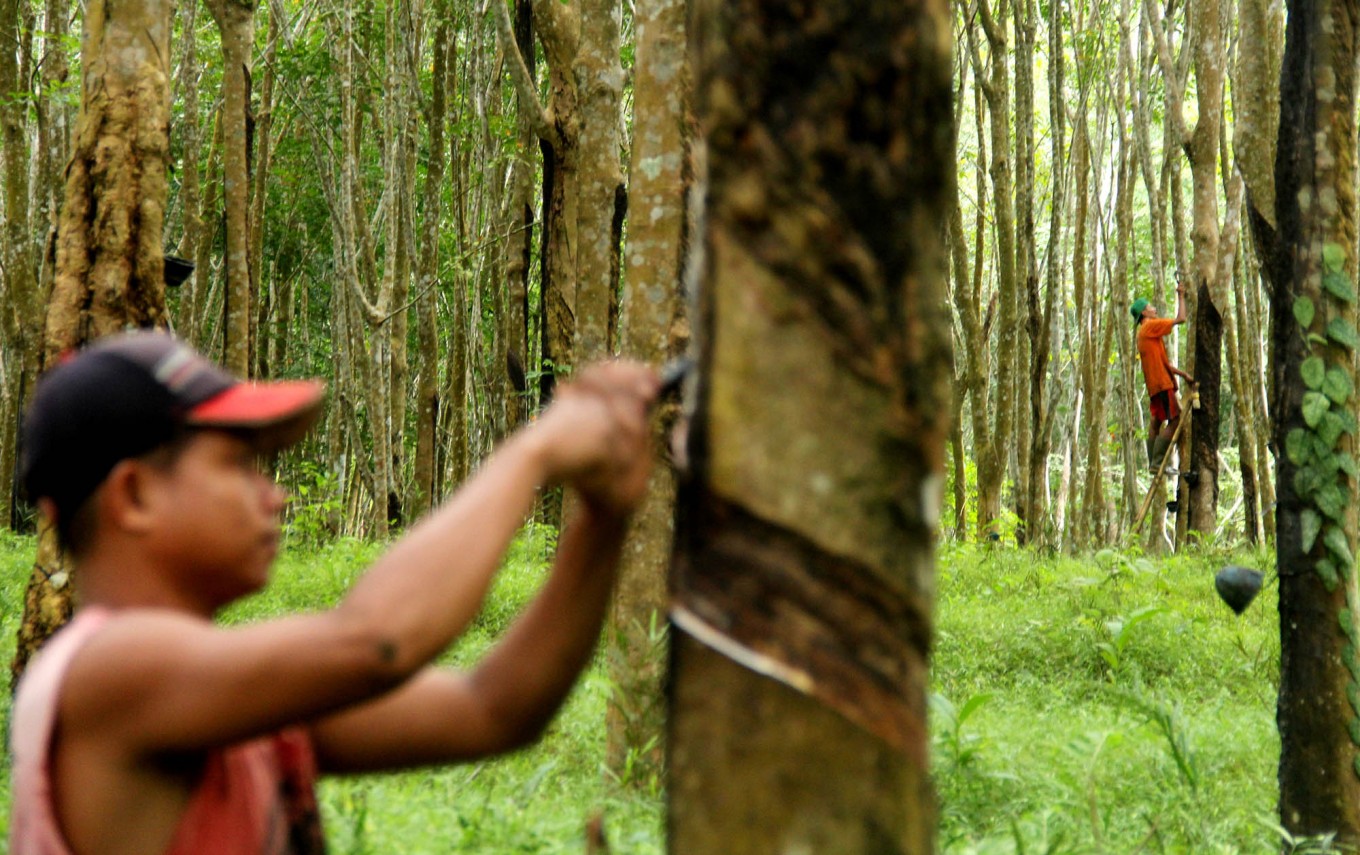Popular Reads
Top Results
Can't find what you're looking for?
View all search resultsPopular Reads
Top Results
Can't find what you're looking for?
View all search resultsPlant disease threatens thousands of hectares of rubber plantations
A plant disease has affected thousands of hectares of rubber plantations in Indonesia and may take a serious toll on natural rubber output this year.
Change text size
Gift Premium Articles
to Anyone
A
n outbreak of Leptosphaeria leaf spot (Pestalotiopsis spp) that has hit many rubber plantations in Indonesia is expected to significantly reduce the country’s natural rubber production.
Agriculture Ministry Plantation Director General Kasdi Subagyono said during a meeting at the Office of the Economic Coordinating Minister in Jakarta on Wednesday that the plant disease had affected at least 382,000 hectares of rubber plantations in the country.
He estimated the disease would reduce output by at least 15 percent this year, kompas.com reported on Wednesday.
Indonesian rubber plantations are dominated by smallholder plantations, which account for 85 percent of the total rubber plantation areas.
According to the Association of Rubber Producers (Gapkindo), the country’s production totaled 3.77 million tons in 2018, a slight increase from 3.63 million tons in 2017. Indonesia, the second-largest producer after Thailand, exported 3.09 million tons last year, down from 3.28 million tons in 2017.
Rubber is one of the country’s major export commodities aside from oil and gas, and it contributes greatly to the country's foreign exchange earnings.
The association estimated that domestic consumption increased to 660,000 tons last year from 629,800 tons in 2017. (hen)










